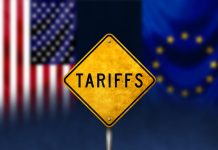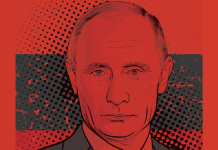By Shawn Pope
For decades now, the World Economic Forum has been holding meetings that connect the global elite with one another, while being funded by the world’s largest multinational firms.
Only recently, however, has the Forum moved beyond a broker to become more of a central figure. It increasingly takes sides on hot-button issues, makes bold statements about the future (“you’ll own nothing and be happy”), and touts its contributions on everything from world peace to sustainable farming.
Yet, even as the Forum has strutted into the foreground, becoming a legitimate object of criticism, there has been a lack of serious research on it. As such, the recent book by Ernst Wolff, The World Economic Forum: The Global Shadow Elite (Clearsight Media, 2023), is very much needed.
And it is especially timely now with the Forum’s annual meeting in two weeks, when thousands of top executives, heads of state, and leaders of civil society will flock to Davos, Switzerland to discuss the world’s problems in a five-day megaconference.
Given the book’s topicality and potential importance, I review it below, starting with description (the book’s thesis, author, style and structure) before evaluation (the book’s main selling point and its shortcomings).
The thesis
The driving observation of the book is that the Forum, through decades of clever strategy, has become a key player in world politics. This observation should concern us all: The Forum uses its power to ensure that the rules for the global economy are written for the benefit of its paying customers, multinational firms, often in closed-door meetings.
Even worse than the lack of transparency and democratic process is the gaslighting. From its earliest days, the Forum has sought to cover its nakedness as the top corporate lobby at the world level with the fig leaf of “stakeholder capitalism,” trying to convince us all that an economic system overseen by its winners is for the common good. Because the system depends on the ignorance of the masses, the book is an exposé, with particularly good manifestations of the Forum’s evolution and key events in its history.
The author
An independent journalist, Wolff is a seasoned writer on the global political economy whose other books include the first extended history of the International Monetary Fund (Pillaging the World: The History and Politics of the IMF, 2014) and an edgy primer on the global monetary system (Wolff of Wall Street: How the Global Financial System Threatens Us All, 2017). Outside his books, he discusses the machinery and machinations behind the world economy with his 85k followers on X (formerly Twitter) and 150k subscribers on YouTube. He also frequently appears in the intellectual corners of the blog, radio, and podcast ecosystem of Germany, a country where two of his books (including the one under discussion) have appeared on the bestseller lists of Der Speigel.
The style and structure
The main arc of the book is chronological: It begins with an establishing chapter that is set at the Forum’s present-day headquarters on the shores of Lake Geneva. Next is a deep rewind to the childhood of the Forum’s founder, Klaus Schwab, and a steady march, chapter by chapter, to the most recent of the Forum’s annual meetings.
The chapters are short (4-5 pages) and the volume, itself, is slimmer than advertised—really only 144 pages if you subtract the needless 111-page appendix, whose data is readily found online (basic profiles of all the Forum’s business partners) or overly tangential to the story (a full listing of Forum’s past and present Young Global Leaders).
The book is clearly written but would benefit from more panache or literary devices so that the reader, more often, is delighted. Throughout, the tone alternates from description of Forum events to sharp moralizing about their portent.
The main selling point
Once its chronological structure was decided, the book was certain to fill a gap. Between the Forum’s own pamphlets and press releases, which are endlessly self-aggrandizing, and the frenzy of news articles about the Forum’s annual meetings, which are short-form, myopic, and quotidian, we need a detailed history of the Forum where its basic facts are arranged for us more linearly than in existing monographs (e.g., Discreet Power: How the World Economic Forum Shapes Market Agendas [2018] and Davos Man: How Billionaires Devoured the World [2022]).
Many insights are gained from this story. At the beginning, for example, we learn that Klaus Schwab is not quite the self-made man we might have imagined, but was born into the profession, the son of a president of a chamber of commerce in Ravensburg, Germany. As the story unfolds, we gather that the Forum, itself, is not so evolved. It has been doing many of the same things from its first annual meeting in 1971—which was in January in Davos, was highly international, (444 attendees from 31 countries), and was marked by the Forum’s signature time-orientation (the first week’s topic “The challenge of the future”).
From there, ensuing chapters show that much of the Forum’s character, as with a human, was set in infancy. From its earliest years, the Forum has had a provocative personality (publishing its first manifesto in 1973), allied with the chosen number of 1,000 companies (1976), incanted its motto (“Committed to improving the state of the world,” 1977), and hawked economic intelligence to the masses (the forerunner to its “Global Competitiveness Report” began in 1979).
The shortcomings
The book is tendentious in its efforts to paint the Forum as powerful and nefarious. Subtly absent is any sustained praise for the Forum, which certainly has done some unqualified good in its fifty years. Readers will also struggle to find anecdotes where the Forum, in a particular circumstance, was not influential or decisive or was just muddling through.
In the worst cases, the book is fallacious. There are passages where the Forum is tarnished by association (an attendee was not properly vetted or went on to do something bad). There are other passages where the Forum’s power is meant to be imputed from the close timing of events (Klaus Schwab pronounced something and, not long after, it happened in the world). Guilt by association, as well as causation by mere precedence, are weak arguments that are too readily made for an organization with thousands of members that, at any given time, is always trying to say something “important.”
Lastly, the book ends without prescription. By the final chapter, the reader has received enough sound evidence to agree that the Forum is powerful and undemocratic, but has been offered no reforms. Reforms are needed as dissolution is out of the question: The Forum’s standing has reached all-time highs and, besides, some version of the Forum is probably helpful. In a world that is always grappling with crises (e.g., Covid-19), conflicts (the Russia-Ukraine war), and grand challenges (climate change), we do need annual, high-level, multi-stakeholder platforms. But how can we ensure that the most famous one truly benefits the commonweal?
Conclusion
The book is flawed even as it fills a good niche. It is worthwhile for any dissident of the global political economy and maybe required for students of the Forum. Although lacking in sparkle, a bit too brief, and often tendentious, it is a one-stop shop for many of the straight facts about the Forum—an organization that needs scrutiny more than ever.
About the Author
 Educated at Duke (BA) and Stanford University (MA, PhD), Shawn Pope is an instructor at Stanford University and an associate professor of Business Strategy at IÉSEG School of Management in Paris, France, where he has taught bachelor’s, master’s, and MBA courses on globalization, strategy, entrepreneurship, ethics, and social responsibility.
Educated at Duke (BA) and Stanford University (MA, PhD), Shawn Pope is an instructor at Stanford University and an associate professor of Business Strategy at IÉSEG School of Management in Paris, France, where he has taught bachelor’s, master’s, and MBA courses on globalization, strategy, entrepreneurship, ethics, and social responsibility.
Shawn has written extensively on the World Economic Forum and similar groups (e.g., the Business Roundtable) in peer-reviewed journals and practitioner outlets such as the California Management Review Insights, London School of Economics Business Review, and World Financial Review, attracting news coverage, among other organizations, from The Hill, Economic Times, Bloomberg, and the World Economic Forum itself. More broadly, Shawn’s research as appeared in other outlets that reach a popular audience, including the Harvard Business Review, MIT Sloan Management Review, and Stanford Social Innovation Review.




































